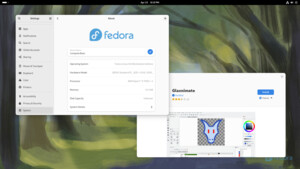Piktogramm
Admiral
- Registriert
- Okt. 2008
- Beiträge
- 8.859
Moin,
der eingerichtete bond ist zwar erreichbar, beim Zugriff mehrerer Clients wird jedoch nur ein physischer Post genutzt statt der konfigurierten zwei. Ich hätte jedoch gern die 2Gbit Durchsatz beim Zugriff mehrerer Clients. Die Frage ist halt, was läuft falsch?
Ubuntu Server 20.04
Netzwerkkonfig via Netplan
Netzwerk: 2x Realtek r8168 mit r8168 Treiber 8.048.00
Beide NICs hängen des Systems sowie alle Clients hängen an einem simplen Switch.
Alle Clients sind Linux Systeme
Der Zugriff erfolgt mittels IPv4 im Bereich 198.128.0.0/24, Zuordnung der IPs erfolgt via DHCP und das auffinden des Servers mittels mDNS (avahi)
Netplan:
ethtool -i
ethtool -k
der eingerichtete bond ist zwar erreichbar, beim Zugriff mehrerer Clients wird jedoch nur ein physischer Post genutzt statt der konfigurierten zwei. Ich hätte jedoch gern die 2Gbit Durchsatz beim Zugriff mehrerer Clients. Die Frage ist halt, was läuft falsch?
Ubuntu Server 20.04
Netzwerkkonfig via Netplan
Netzwerk: 2x Realtek r8168 mit r8168 Treiber 8.048.00
Beide NICs hängen des Systems sowie alle Clients hängen an einem simplen Switch.
Alle Clients sind Linux Systeme
Der Zugriff erfolgt mittels IPv4 im Bereich 198.128.0.0/24, Zuordnung der IPs erfolgt via DHCP und das auffinden des Servers mittels mDNS (avahi)
Netplan:
Code:
network:
bonds:
bond0:
optional: true
dhcp4: true
dhcp6: true
interfaces:
- enp3s0
- enp5s0
parameters:
mode: balance-alb
ethernets:
enp3s0: {}
enp5s0: {}
version: 2ethtool -i
Code:
~$ sudo ethtool -i enp5s0
driver: r8168
version: 8.048.00-NAPI
firmware-version:
expansion-rom-version:
bus-info: 0000:05:00.0
supports-statistics: yes
supports-test: no
supports-eeprom-access: no
supports-register-dump: yes
supports-priv-flags: noethtool -k
Code:
$ sudo ethtool -k enp5s0
Features for enp5s0:
rx-checksumming: on
tx-checksumming: on
tx-checksum-ipv4: on
tx-checksum-ip-generic: off [fixed]
tx-checksum-ipv6: on
tx-checksum-fcoe-crc: off [fixed]
tx-checksum-sctp: off [fixed]
scatter-gather: on
tx-scatter-gather: on
tx-scatter-gather-fraglist: off [fixed]
tcp-segmentation-offload: off
tx-tcp-segmentation: off [fixed]
tx-tcp-ecn-segmentation: off [fixed]
tx-tcp-mangleid-segmentation: off [fixed]
tx-tcp6-segmentation: off [fixed]
generic-segmentation-offload: on
generic-receive-offload: on
large-receive-offload: off [fixed]
rx-vlan-offload: on
tx-vlan-offload: on
ntuple-filters: off [fixed]
receive-hashing: off [fixed]
highdma: on [fixed]
rx-vlan-filter: off [fixed]
vlan-challenged: off [fixed]
tx-lockless: off [fixed]
netns-local: off [fixed]
tx-gso-robust: off [fixed]
tx-fcoe-segmentation: off [fixed]
tx-gre-segmentation: off [fixed]
tx-gre-csum-segmentation: off [fixed]
tx-ipxip4-segmentation: off [fixed]
tx-ipxip6-segmentation: off [fixed]
tx-udp_tnl-segmentation: off [fixed]
tx-udp_tnl-csum-segmentation: off [fixed]
tx-gso-partial: off [fixed]
tx-sctp-segmentation: off [fixed]
tx-esp-segmentation: off [fixed]
tx-udp-segmentation: off [fixed]
fcoe-mtu: off [fixed]
tx-nocache-copy: off
loopback: off [fixed]
rx-fcs: off
rx-all: off
tx-vlan-stag-hw-insert: off [fixed]
rx-vlan-stag-hw-parse: off [fixed]
rx-vlan-stag-filter: off [fixed]
l2-fwd-offload: off [fixed]
hw-tc-offload: off [fixed]
esp-hw-offload: off [fixed]
esp-tx-csum-hw-offload: off [fixed]
rx-udp_tunnel-port-offload: off [fixed]
tls-hw-tx-offload: off [fixed]
tls-hw-rx-offload: off [fixed]
rx-gro-hw: off [fixed]
tls-hw-record: off [fixed]
Zuletzt bearbeitet:



